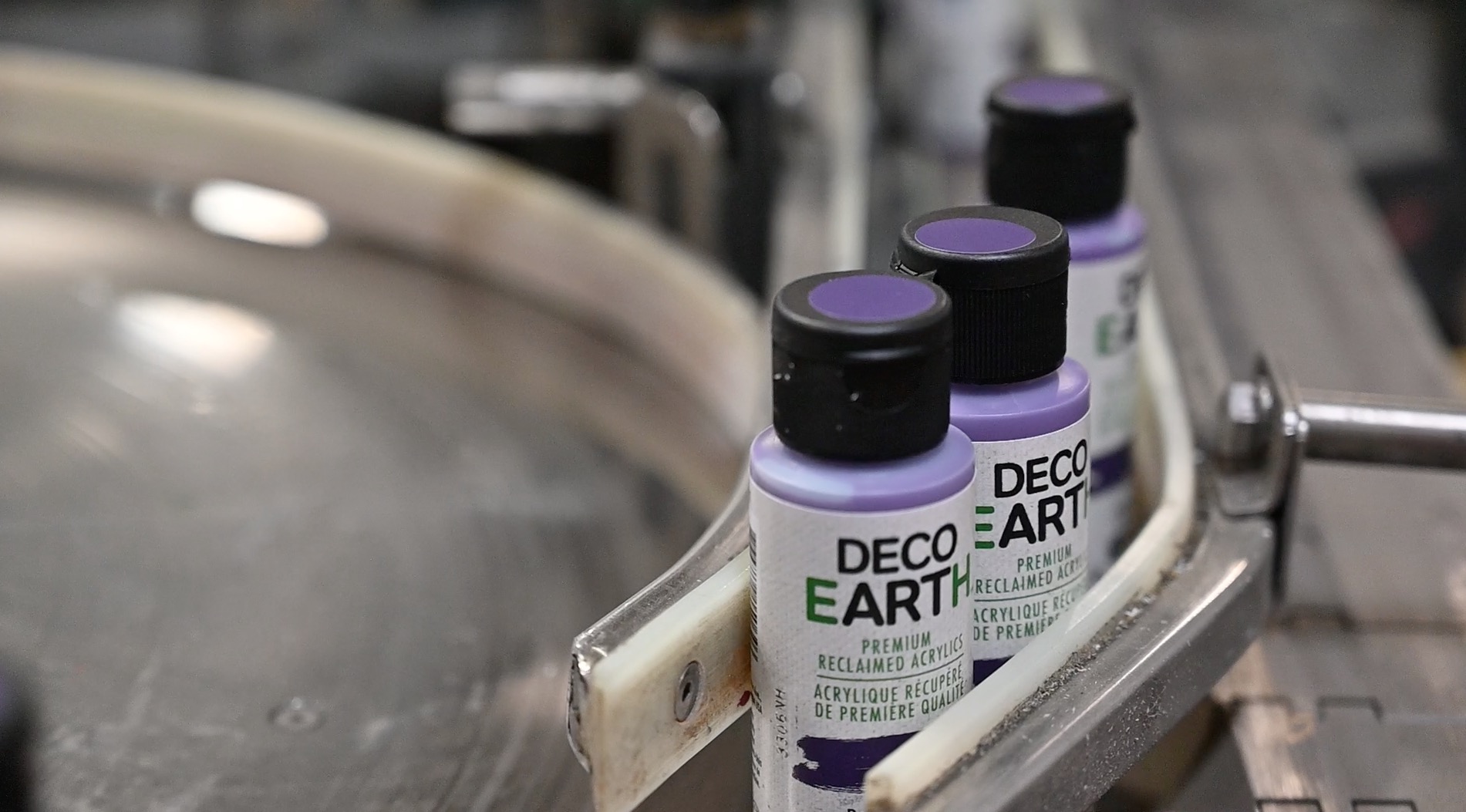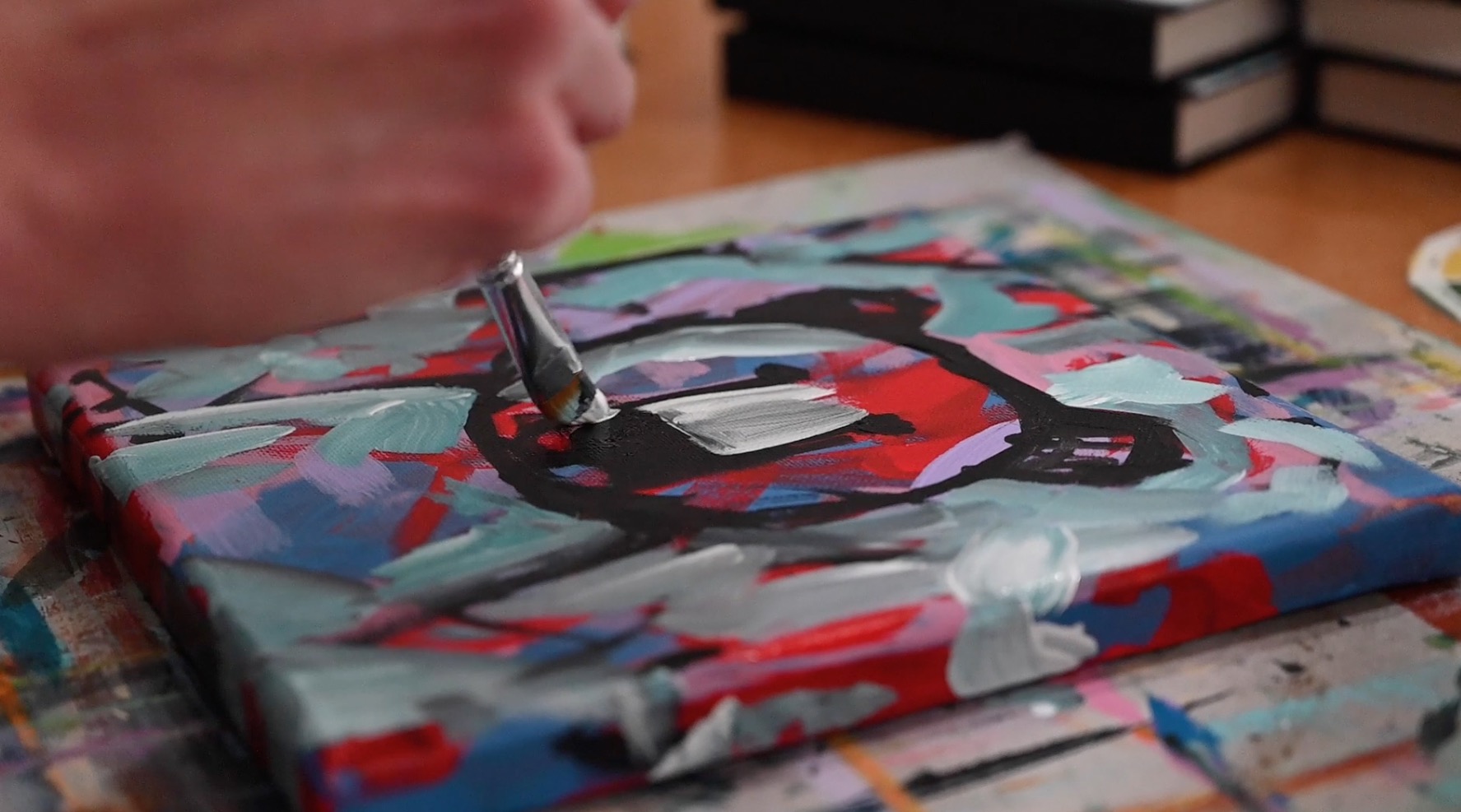Green Light
Lexington-based DecoEARTH paints a bright future
By Kevin Nance
Being an acrylic painter or craft artisan and being concerned about the environment often go hand in hand, which is why DecoArt, a Lexington-based company with about 100 employees, is introducing a new eco-friendly paint line.
DecoEARTH Reclaimed Acrylics, made from 70 percent recycled house paint at the company’s manufacturing plant in Stanford, KY, are designed to appeal to visual artists who might welcome a chance to make beautiful art while helping to save the planet.
“We had long been interested in creating a more sustainable version of our main DecoArt paints,” says Tom Schaub, the company’s vice president of business development. To that end, DecoArt’s research and development lab in Stanford had experimented with soy and other materials, he says, “but that research didn’t yield the quality, premium product we were looking for.”

From supply and sustainability standpoints, it’s an attractive plan. According to a 2022 report by the Environmental Protection Agency, about 750,000 gallons of house paint are sold in the U.S. every year, about 10 percent of which goes unused and ultimately ends up in landfills.
On the other hand, a good deal of effort goes into transforming the salvaged paint into DecoEARTH’s range of 27 vivid colors in a creamy, spreadable, mixable medium. The house paint is filtered, sorted into similar color ranges and grouped manually into seven base colors — blue, red, yellow, pink, ivory, gray and black — before pigments are added.
Discarded paint is collected from centers across the United States. It is processed and sorted by like-colors. The processed paint is sent to DecoArt’s manufacturing plant in Kentucky, where materials and tints bring the reclaimed paint to DecoArt’s quality and color specifications.
“One of the challenges is that the bases are always slightly different, so they have to be tweaked differently each time,” Schaub says. “With virgin paint material, we have more control from the start, whereas reclaimed paint requires batch-by-batch quality control.” (Because some colors require more virgin material than others, he added, some have less than the 70 percent recycled component; the quoted percentage refers to the average recycled content across the entire line.)

“I was green before it was a concept with a name, and I’m very interested in protecting the environment, so I’d be very interested in trying it,” says Lexington painter Dalphna Donnelly, who used recycled house paint when she taught painting at a local prison facility for several years and found that it worked well. “I’m very picky about my colors, and I especially don’t like cloudy colors. But I would definitely give it a shot.”
Sandy McTier, a painter and touring art instructor who was sent unlabeled samples of the new product, says, “My favorite thing — other than the story of it, the fact that it’s keeping all those old paint out of the landfill, which is amazing — is that it’s such a beautiful paint to work with. It covers really well, it mixes well, and the colors are true.”
DecoEARTH is currently available only online but will likely soon join other DecoArt paints on shelves at national retailers Schaub says. He adds that forthcoming DecoEARTH products will include cruelty-free brushes with bamboo handles and biodegradable palettes.
This article appears on pages 8-9 of the March 2024 issue of Ace. To subscribe to digital delivery each month, click here.





